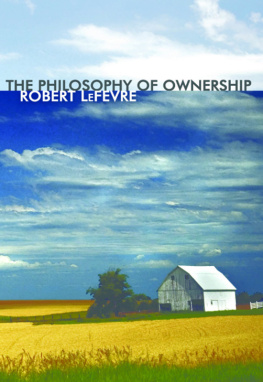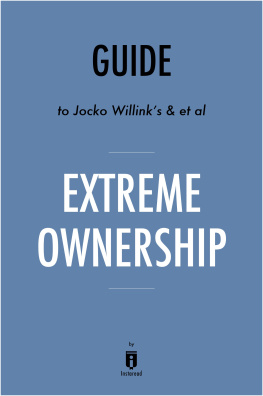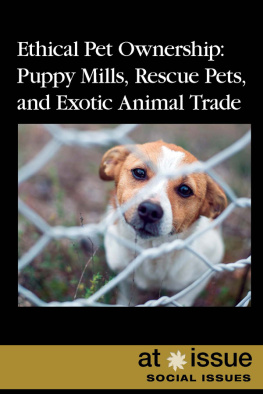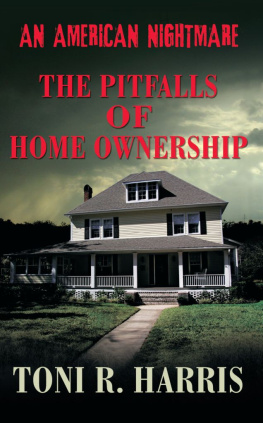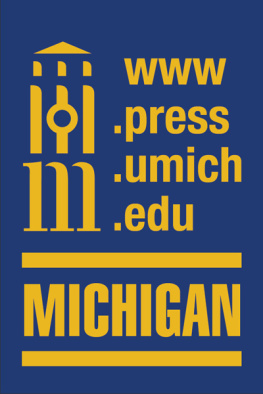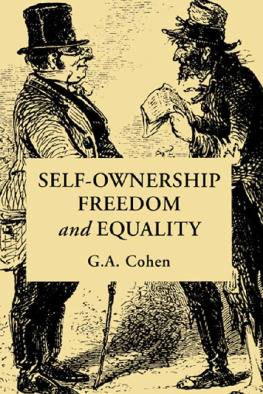The Philosophy
of Ownership
by
Robert LeFevre

First Printing 1966
Second Printing 1971

Robert LeFevre is president of
Rampart College.
He is the author of The Nature of
Man and His Government, This Bread
Is Mine, The Philosophy of Ownership,
and numerous other published works.
A noted speaker, he conducts
seminars for advanced student and
business-oriented groups.
Table of Contents
Chapter I
Property and Ownership
The significance of property ownership has rarely been fully appreciated. All sentient life is concerned with property, either instinctively or rationally. No organism capable of volitional action can escape the demands arising within it for some kind of property relationship. Survival of all beings capable of consciousness is predicated directly upon some kind of property relationship.
Simple forms of life are propelled instinctively toward food, which they possess and ingest. Possession is a property relationship. Complex forms of life are guided, partly by instinct and partly by rational processes, toward the mastery of their environment which occurs when property is acquired and utilized. A propertyless living organism is inconceivable.
Man, the most complex of all living creatures, has the most numerous and varied demands to express in relation to property. Guided by reason or by a few residual instinctive drives, man dominates his environment more than any other living thing. His mastery of environment is primarily if not totally a matter of property acquisition and utilization.
Since the concern of this study relates entirely to mans well-being, and is not concerned with the well-being of other living things, the approach here will be to develop a philosophy of property ownership within a human context. Since virtually all struggle for existence and for improving the conditions of existence deals directly or indirectly with property, this philosophy must include an examination of the gigantic role property plays in human living. Any philosophy must include an examination of the facts and principles of reality, and since property comprises an order of fact and principle of overwhelming magnitude, no philosophy of practical significance can overlook this area. Nearly all philosophical studies up to the present time have concentrated their inquiry in the theological, mystical, and metaphysical realms, seeking to probe the mystery of lifes origins and to chart the methods and epistemology of knowledge, yet circumventing the question of property or, at best, skimming briefly over the surface.
One of the obvious reasons for this avoidance appears to be the very early assumption that property and property relationships were somehow crass and materialistic. The yearning of the early lovers of wisdom was for an unfoldment of the real character of life. Property was viewed more or less as impedimentia. But this is probably because the early tendency was to look at property as things, or simply as land, and to fail to realize that the desire and drive for property, the yearning for ownership, is one of the most fundamental facts of life. Human beings long for personal and individual identification. The desire to own property contains the concept of exclusiveness, of individualization. Ownership is an expression of this longing. Human beings long to possess items which they admire and appreciate. Conceivably, love, recognized as fundamental with humans, is somehow related to this deeply imbedded drive to possess, to own, to master personally, to exclude the rest of the world.
Property viewed as the object or objects of mans drive to own, is of far less importance than the drive itself. To own, to possess, to control and master, to acquire and utilizethese motivations are basic to man. The objects of these drives vary and are essentially incidental to them, many different kinds of property serving satisfactorily as the targets for mens yearnings.
Had the attention of the early savants focused primarily upon the human propensity to own, they might have recognized its fundamental nature. Instead, they focused upon the objects to be owned, the things, which were deemed of less importance than man. Thus, in early efforts to understand, property and ownership meant the same thing. Property (the item to be owned) and ownership (the act of owning) were somehow indiscriminately merged, which led to oversimplifications and devious thinking. While these philosophers evaluated correctly the primacy of man in relation to property, they considered mans yearning to possess it an undesirable trait which superior men could and would sublimate.
This type of reasoning is implicit in Platos Republic; the Stoics adopted it. The Epicureans, who rejected the proposition and reversed it, were viewed as hedonistic or as gross sensualists. Christianity, which borrowed so much from both Plato and the Stoics, carried forward the idea that virtue was somehow related to propertylessness; the poor were in a more favored position because they were not burdened with possessions. To follow the Master, one was admonished to give away what he possessed.
Buddhism, which preceded Christianity, proposed that it is desire itself which constitutes mans major problem. It is not enough to abandon property; mental and emotional discipline must be imposed to the point where the individual loses all desire. Nirvana, the state of transcendent nothingness, arrives only for the individual who has stopped all yearning, including even the yearning for Nirvana.
After the study of economics had been organized and its first monumental work published, economic examination was viewed by Carlyle as the dismal science. What could be less inspiring than an examination of the physical facts of reality dealing with production and distribution? But the economists, too, tended to overlook the significance of ownership. They became engrossed in property itself, as well as its utilization. Most of them became preoccupied with statistics in an effort to prove either that there are natural laws which govern the flow of goods and services in the market, or that there are no such natural laws.
Criticism of the classical economists is not intended. They pointed out that man is acquisitive, that his wants are apparently insatiable, that he will struggle, indeed, he must struggle for the scarce items that make survival possible. But the classicists, along with many others, called for a central agency of force to regulate man and his relationships to property. Mans desire to own was viewed as both a natural endowment and something that was fraught with much danger.
In all this, men were viewed as either workers and laborers, or as consumers. Those few who served as capitalists and entrepreneurs were rarely recognized for what they were, merely specialized kinds of workers or consumers. Almost all men play both roles, serving as producers and then as consumers. Workers, entrepreneurs, capitalistsproducers allunite in being consumers. But popular misconceptions placed capitalists and entrepreneurs in a separate category, under the supposition that they were extracting wealth or money from the market and hence preventing workers as well as consumers from their full and deserved rewards. The argument became heated and political. Less and less thought was given to the nature of man as an owner, and more and more thought was given to amounts of property owned and to the social and collective implications of scarce amounts of property (poverty) and abundant amounts of property (riches).

